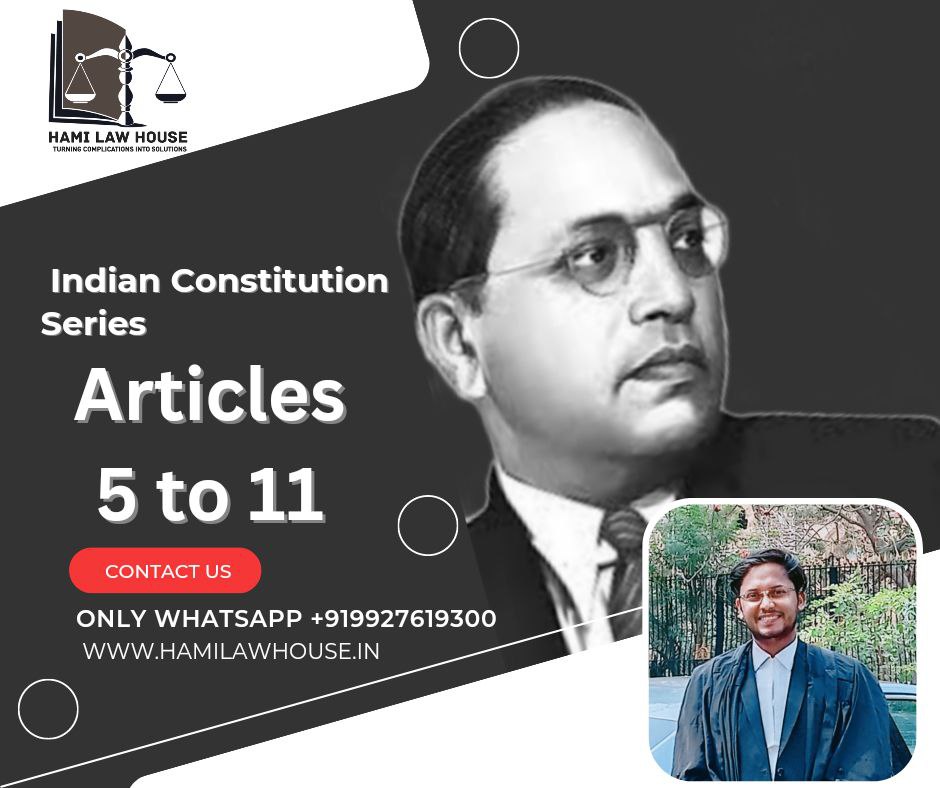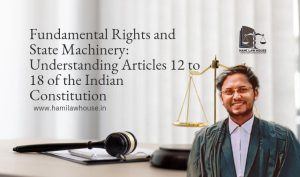News Delhi: Certainly! Let’s explore Articles 5 to 11 of the Indian Constitution and provide examples to understand their provisions:
- Article 5: Citizenship at the Commencement of the Constitution
Article 5 deals with the determination of citizenship at the commencement of the Indian Constitution. It states that any person who was born in India or whose parents were born in India is considered a citizen of India. For example, if a person was born in India before the Constitution came into effect on January 26, 1950, or if their parents were born in India, they are considered Indian citizens under Article 5.
- Article 6: Rights of citizenship of certain persons who have migrated to India from Pakistan
Article 6 provides rights of citizenship to individuals who migrated to India from Pakistan after the partition. It states that individuals who migrated to India from Pakistan are considered Indian citizens if they or their parents or grandparents were born in India and if they have been residing in India since the migration. This article grants citizenship to those who had to leave Pakistan and settle in India due to the partition.
- Article 7: Rights of citizenship of certain migrants to Pakistan
Article 7 deals with the rights of individuals who migrated to Pakistan after the partition. It states that individuals who migrated to Pakistan but subsequently returned to India are eligible to become Indian citizens if they fulfill certain conditions, such as being registered as citizens of India within a specified timeframe. This article facilitates the citizenship of individuals who moved to Pakistan but later chose to return to India.
- Article 8: Rights of citizenship of certain persons of Indian origin residing outside India
Article 8 pertains to individuals of Indian origin who are residing outside India. It grants them the right to register themselves as Indian citizens if they fulfill certain conditions specified by the Parliament. For example, a person of Indian origin who resides in the United States but wishes to obtain Indian citizenship can do so by following the registration process outlined by the Indian government.
- Article 9: Persons voluntarily acquiring citizenship of a foreign State not to be citizens
Article 9 states that if an individual voluntarily acquires the citizenship of a foreign country, they will cease to be an Indian citizen. However, the Parliament has the power to make exceptions to this provision by enacting a law. This article emphasizes that acquiring foreign citizenship voluntarily can lead to the loss of Indian citizenship.
- Article 10: Continuance of the rights of citizenship
Article 10 ensures the continuance of the rights of citizenship even if there are changes in the territories of India. It states that the rights of citizenship will remain unaffected despite any alteration in the territories of India. This provision guarantees the preservation of citizenship rights regardless of any territorial changes that may occur.
- Article 11: Parliament to regulate the right of citizenship by law
Article 11 grants the power to the Parliament to regulate the right of citizenship by enacting laws. The Parliament has the authority to make provisions for matters such as acquisition and termination of citizenship. This article enables the Parliament to enact legislation to address any issues or concerns related to citizenship that are not explicitly mentioned in the Constitution.
These articles collectively establish the provisions and regulations regarding citizenship in India, addressing various scenarios such as migration, residency, and acquisition of foreign citizenship.

